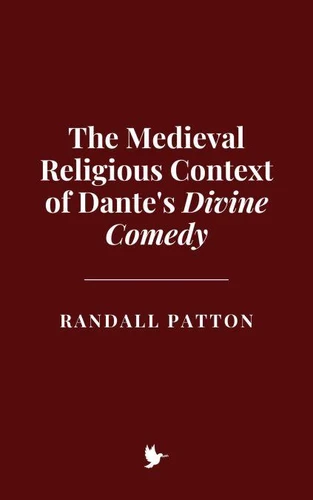The Medieval Religious Context of Dante's Divine Comedy
Par :Formats :
Disponible dans votre compte client Decitre ou Furet du Nord dès validation de votre commande. Le format ePub est :
- Compatible avec une lecture sur My Vivlio (smartphone, tablette, ordinateur)
- Compatible avec une lecture sur liseuses Vivlio
- Pour les liseuses autres que Vivlio, vous devez utiliser le logiciel Adobe Digital Edition. Non compatible avec la lecture sur les liseuses Kindle, Remarkable et Sony
 , qui est-ce ?
, qui est-ce ?Notre partenaire de plateforme de lecture numérique où vous retrouverez l'ensemble de vos ebooks gratuitement
Pour en savoir plus sur nos ebooks, consultez notre aide en ligne ici
- FormatePub
- ISBN8227273796
- EAN9798227273796
- Date de parution17/02/2025
- Protection num.pas de protection
- Infos supplémentairesepub
- ÉditeurBig Dog Books, LLC
Résumé
The religious landscape of Dante's world was dominated by a blend of orthodox Catholic doctrine and the lingering influence of earlier philosophical traditions, particularly those of Aristotle, Augustine, and the Neoplatonists. The Catholic Church, with its intricate theology, rituals, and beliefs, permeated every aspect of medieval life. Dante was deeply immersed in this culture, as was evident in his extensive education, which was rooted in the Christian teachings of the Church, as well as in the works of classical authors who had been incorporated into Christian thought.
The Divine Comedy is also a profound exploration of medieval Catholic eschatology, the study of the last things: death, judgment, Hell, Heaven, and Purgatory. The medieval Christian understanding of the afterlife was deeply shaped by the Bible, particularly the New Testament, as well as by the Church Fathers and medieval theologians.
The Divine Comedy is also a profound exploration of medieval Catholic eschatology, the study of the last things: death, judgment, Hell, Heaven, and Purgatory. The medieval Christian understanding of the afterlife was deeply shaped by the Bible, particularly the New Testament, as well as by the Church Fathers and medieval theologians.
The religious landscape of Dante's world was dominated by a blend of orthodox Catholic doctrine and the lingering influence of earlier philosophical traditions, particularly those of Aristotle, Augustine, and the Neoplatonists. The Catholic Church, with its intricate theology, rituals, and beliefs, permeated every aspect of medieval life. Dante was deeply immersed in this culture, as was evident in his extensive education, which was rooted in the Christian teachings of the Church, as well as in the works of classical authors who had been incorporated into Christian thought.
The Divine Comedy is also a profound exploration of medieval Catholic eschatology, the study of the last things: death, judgment, Hell, Heaven, and Purgatory. The medieval Christian understanding of the afterlife was deeply shaped by the Bible, particularly the New Testament, as well as by the Church Fathers and medieval theologians.
The Divine Comedy is also a profound exploration of medieval Catholic eschatology, the study of the last things: death, judgment, Hell, Heaven, and Purgatory. The medieval Christian understanding of the afterlife was deeply shaped by the Bible, particularly the New Testament, as well as by the Church Fathers and medieval theologians.
















